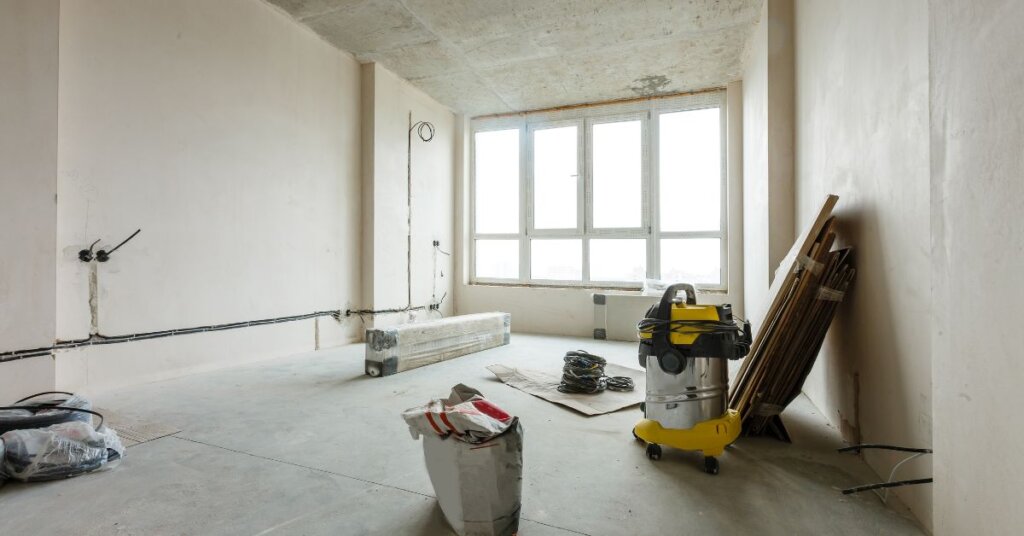
Buying a home is a big deal. But life happens, and sometimes you need to sell sooner than planned. Maybe you’re moving for work, dealing with financial struggles, or just want a change. Whatever the reason, you might be wondering how long you have to live in a house before selling in California. Technically, there’s no law stopping you from selling your home whenever you want. But selling too soon can cost you—big time. There are taxes, mortgage penalties, and closing costs to think about. Understanding California home selling rules can help you avoid unnecessary expenses and make a smarter decision about when to sell. Selling too soon can impact your finances, so knowing how long to live in a house before selling helps you avoid unnecessary costs and make the most of your investment.
How Long Should You Stay in a House Before Selling?
There’s no legal requirement, but timing impacts your profit. Selling too soon could lead to high taxes, mortgage penalties, and minimal equity. Many homeowners wait at least two years to qualify for tax benefits. Others aim for five years to recover costs and maximize equity growth. The right time depends on your situation.
1. The 2-Year Rule and Tax Savings
Here’s a major thing to consider: taxes. If you stay in your home for two years, you might qualify for the primary residence tax exemption. What does that mean? You could avoid paying capital gains tax on $250,000 (if you’re single) or $500,000 (if you’re married) when you sell. That’s a lot of money. Sell before two years, and you’ll owe taxes on all your profits. Not ideal, right?
2. Mortgage Prepayment Penalties Can Hurt
Ever heard of mortgage prepayment penalties in California? Some home loans come with fees if you sell too soon. Lenders expect to make money on interest, and if you cut their earnings short, they charge you for it. If you sell within the first one to three years, your lender might hit you with extra costs. Check your loan agreement to see if this applies to you before rushing into a sale.
3. Recovering Your Investment Takes Time
When you buy a home, you pay for a lot more than just the house itself. You’ve got closing costs, realtor fees, moving expenses, and maintenance costs. If you sell too soon, you might not have built enough equity to cover all that. Most real estate experts say staying in your home for at least five years is best. This gives your home time to gain value and helps you make back what you put in.
Selling a House After One Year: Good or Bad Idea?

Selling early can cost you. Capital gains tax, low home equity, and mortgage prepayment penalties in California may eat into your profit. If the market is strong, you might break even. But without significant appreciation, you could lose money. Evaluating your loan terms, tax impact, and closing costs is crucial before deciding.
1. Capital Gains Tax on Home Sale is Higher
If you sell before one year, any profit you make is considered a short-term capital gain. And guess what? Short-term gains are taxed at your regular income tax rate, which could be as high as 37%. That’s a big chunk of your money gone. But if you wait more than a year, you qualify for the long-term capital gains tax rate, which is much lower (between 0% to 20%).
2. You Probably Haven’t Built Enough Equity
Most mortgage payments in the first year go toward interest, not the actual loan balance. So, if you sell right away, you may not have built much home equity. If your home hasn’t increased in value, you could end up barely breaking even—or worse, losing money after paying off your loan and selling costs.
3. Possible Mortgage Penalties Can Make It Worse
Some loans have mortgage prepayment penalties in California. These fees can be 1-3% of your remaining loan balance, which could add up fast. Always check your mortgage terms before deciding to sell.

How Long Is the Home Resale Waiting Period in California?
There’s no set home resale waiting period California, but timing affects financial outcomes. Selling before one year brings higher taxes and lender penalties. Waiting at least two years helps avoid capital gains tax. By five years, you’ve built enough equity to cover costs and turn a profit. Long-term ownership often benefits sellers.
1. Selling in Less Than 1 Year is Risky
Selling within a year can lead to high capital gains tax, mortgage penalties, and closing costs. Short-term gains are taxed at regular income rates, which can be as high as 37%. Plus, most of your mortgage payments go toward interest, leaving you with little equity. Financial losses are likely.
2. Selling After 2 Years Saves You on Taxes
Waiting at least two years helps you qualify for the primary residence tax exemption. This allows you to avoid paying capital gains tax on up to $250,000 (single) or $500,000 (married) in profit. Selling before two years could mean losing out on thousands of dollars in tax savings.
3. Selling After 5 Years is the Best Financial Move
By five years, you’ve likely built up enough equity to cover closing costs, realtor fees, and mortgage payoff. You’ll also have a better chance of selling during a strong market, increasing your profit. This timeline allows you to avoid financial losses and make the most out of your investment.
Tax Benefits of Living in a Home Before Selling

Selling a home comes with tax implications. The tax benefits of living in a home before selling can save you thousands. Living in your house for two years qualifies you for the primary residence tax exemption, reducing capital gains tax. Staying longer also allows mortgage interest deductions, increasing tax savings.
1. Primary Residence Tax Exemption Saves You Thousands
If you live in a house before selling for at least two years, you can claim the primary residence tax exemption. This means you won’t pay capital gains tax on up to $250,000 (single) or $500,000 (married) of your profit. Selling too soon? You’ll owe taxes on everything.
2. Long-Term Capital Gains Tax is Lower
If you own your home for more than one year, your capital gains tax on home sale is reduced. Instead of paying short-term tax rates (which can be as high as 37%, long-term capital gains tax rates range from 0% to 20%, saving you a significant amount of money.
3. Mortgage Interest and Property Tax Deductions
As a homeowner, you can deduct mortgage interest and property taxes while living in your home. These deductions lower your taxable income, saving you money every year. The longer you stay, the more you benefit from these tax breaks, making homeownership a more financially rewarding experience.
California Property Sale Timeline: What to Expect?
The California property sale timeline varies based on market conditions, home condition, and selling strategy. A traditional home sale takes 30-90 days, while selling to a direct home buyer can close in a week. The best timing depends on the real estate market, pricing, and how quickly you need to sell.
- Market Conditions Matter: In a seller’s market, homes get snapped up fast. In a buyer’s market, you might wait longer and have to accept lower offers. Timing your sale right can make a big difference.
- Pricing and Home Condition Affect Speed: A well-priced, move-in-ready home will sell faster than an overpriced fixer-upper. If you want a quick sale, make sure your home is competitively priced and in good shape.
- Selling to a Home Buyer Can Speed Things Up: Traditional home sales take 30-90 days, but selling to a direct home buyer like We Buy Houses County Wide can close in as little as a week. If you need to sell fast, this could be your best option.
Conclusion: Best Time to Sell Your House in California?
The longer you live in a house before selling, the better your chances of making a profit. Selling too soon? You could lose money due to taxes, fees, and penalties. Waiting at least two years helps you avoid capital gains tax. Staying five years or more allows you to build equity and recover costs.
If you need to sell fast, working with We Buy Houses County Wide can make things simple. They handle the paperwork, offer cash, and let you skip the hassle of a traditional sale.
FAQs
What happens if I sell my house before two years?
You might lose the primary residence tax exemption and owe capital gains tax on any profit. Selling early can also mean mortgage penalties and lower home equity, reducing your financial gain.
Do I have to pay taxes if I sell after one year?
Yes. The capital gains tax on home sale is higher if you sell before two years. Short-term gains are taxed at regular income tax rates, which can be significantly higher.
Can I sell my home after six months?
Yes, but expect high taxes, prepayment penalties, and minimal equity growth. Selling within six months often results in financial loss, unless the market has appreciated significantly in a short time.
Is selling after five years better?
Yes. By five years, you’ve built equity, covered closing costs, and can sell for a profit. You also avoid short-term capital gains tax, maximizing your return on investment.
What’s the fastest way to sell my home?
Selling to a direct home buyer like We Buy Houses County Wide allows you to skip agent fees, repairs, and long wait times, making the process quick and hassle-free.

